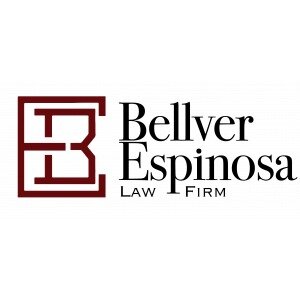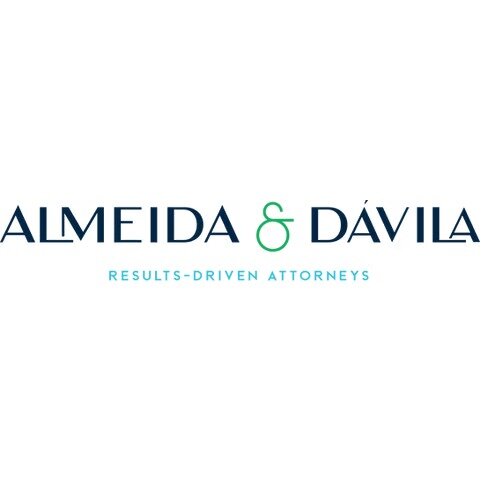Best Debt & Collection Lawyers in Puerto Rico
Share your needs with us, get contacted by law firms.
Free. Takes 2 min.
Or refine your search by selecting a city:
List of the best lawyers in Puerto Rico
About Debt & Collection Law in Puerto Rico
Debt and collection laws in Puerto Rico are designed to govern the processes involved when a debtor owes money to a creditor. These laws ensure that both parties are treated fairly and that collections are conducted within legal boundaries. With economic challenges faced by many, debt issues such as unpaid personal loans, credit card bills, mortgages, and utility bills are common. The laws in Puerto Rico focus on balancing the debtor's need for protection and the creditor's right to collect what is owed. It’s important for individuals dealing with debt issues to understand these laws to ensure their rights are not violated.
Why You May Need a Lawyer
There are several scenarios where seeking legal assistance in the field of debt and collection might be necessary. These include:
- Receiving a lawsuit from a creditor or collection agency.
- Facing aggressive or unlawful collection practices.
- Needing help in negotiating repayment plans or settlements.
- Wanting to understand your rights under local debt collection laws
- Considering bankruptcy due to overwhelming debt.
- Reviewing and disputing inaccurate credit reports.
A lawyer can provide valuable advice, represent you in court, and ensure that debt collectors adhere to legal requirements.
Local Laws Overview
Puerto Rico’s debt collection laws incorporate both federal regulations like the Fair Debt Collection Practices Act (FDCPA) and local statutes. Key aspects include:
- Fair Debt Collection Practices Act (FDCPA): This federal law is applicable in Puerto Rico and prohibits abusive, deceptive, and unfair collection practices.
- Consumer Credit Protection Act: Offers protections related to the garnishment of wages and outlines debts that are non-dischargeable in bankruptcy.
- Bankruptcy Code: Provides mechanisms for individuals to manage debt, including Chapter 7 and Chapter 13 bankruptcies.
- Civil Code: Governs contracts and obligations, including provisions related to the collection of debts.
Understanding these laws helps individuals protect themselves from unlawful collection practices and make informed decisions about debt repayment strategies.
Frequently Asked Questions
What is the statute of limitations for collecting debts in Puerto Rico?
The statute of limitations for debt collection in Puerto Rico generally ranges from 5 to 15 years, depending on the type of debt. It’s important to consult with a lawyer to understand these timeframes fully.
Can wages be garnished for debt in Puerto Rico?
Yes, wages can be garnished, but Puerto Rican law and the federal Consumer Credit Protection Act limit the amount that can be garnished.
What if a debt collector is harassing me?
If you’re experiencing harassment from a debt collector, you can file a complaint with the Office of the Commissioner of Financial Institutions or seek legal counsel for possible violations of the FDCPA.
Can I settle a debt for less than I owe?
Yes, many creditors are willing to negotiate a debt settlement, which allows you to pay a lump sum that's less than the full amount owed.
Is filing for bankruptcy a good idea?
Filing for bankruptcy can help manage debt, but it’s a serious decision with long-term implications. Consulting a lawyer can help you determine if it is the best option for your situation.
How does the FDCPA protect me?
The FDCPA prohibits abusive practices by debt collectors, including calling at odd hours, using threatening language, and misrepresenting the debt.
Can I dispute a debt?
Yes, if you believe a debt is inaccurate, you can request verification from the collection agency, and they must provide proof of the debt or cease further collection efforts.
What happens if I ignore a debt collection notice?
Ignoring a debt notice can lead to legal action by the creditor, including a lawsuit to recover the debt, which can result in wage garnishment or a lien on property.
How can a lawyer help me manage debt?
A lawyer can help by negotiating with creditors, representing you in court, and advising on legal options like bankruptcy or settlements.
Are there any government organizations that can help with debt issues?
Yes, the Office of the Commissioner of Financial Institutions in Puerto Rico can offer assistance and guidance regarding debt issues.
Additional Resources
For more assistance with debt and collection issues in Puerto Rico, consider the following resources:
- Office of the Commissioner of Financial Institutions: Provides oversight and handles complaints related to financial institutions and debt collectors.
- Federal Trade Commission (FTC): Offers resources and information on federal laws, including the FDCPA.
- Puerto Rico Legal Aid Society: Offers free or low-cost legal assistance to eligible individuals needing help with debt-related issues.
- Non-profit credit counseling services: These organizations can provide advice on debt management and consolidation strategies.
Next Steps
If you require legal assistance in handling debt and collection issues, consider taking the following steps:
- Gather all relevant documentation related to the debt, including notices, correspondence, and contract agreements.
- Consult with a reputable lawyer who specializes in debt and collection law to evaluate your options and rights.
- Consider reaching out to a credit counseling service for advice on managing your finances and exploring any existing options for debt resolution.
- Monitor your credit report regularly to ensure accuracy and address any discrepancies promptly.
Seeking legal guidance can provide clarity and options as you navigate complex debt issues and strive toward financial stability.
Lawzana helps you find the best lawyers and law firms in Puerto Rico through a curated and pre-screened list of qualified legal professionals. Our platform offers rankings and detailed profiles of attorneys and law firms, allowing you to compare based on practice areas, including Debt & Collection, experience, and client feedback.
Each profile includes a description of the firm's areas of practice, client reviews, team members and partners, year of establishment, spoken languages, office locations, contact information, social media presence, and any published articles or resources. Most firms on our platform speak English and are experienced in both local and international legal matters.
Get a quote from top-rated law firms in Puerto Rico — quickly, securely, and without unnecessary hassle.
Disclaimer:
The information provided on this page is for general informational purposes only and does not constitute legal advice. While we strive to ensure the accuracy and relevance of the content, legal information may change over time, and interpretations of the law can vary. You should always consult with a qualified legal professional for advice specific to your situation.
We disclaim all liability for actions taken or not taken based on the content of this page. If you believe any information is incorrect or outdated, please contact us, and we will review and update it where appropriate.
Browse debt & collection law firms by city in Puerto Rico
Refine your search by selecting a city.









